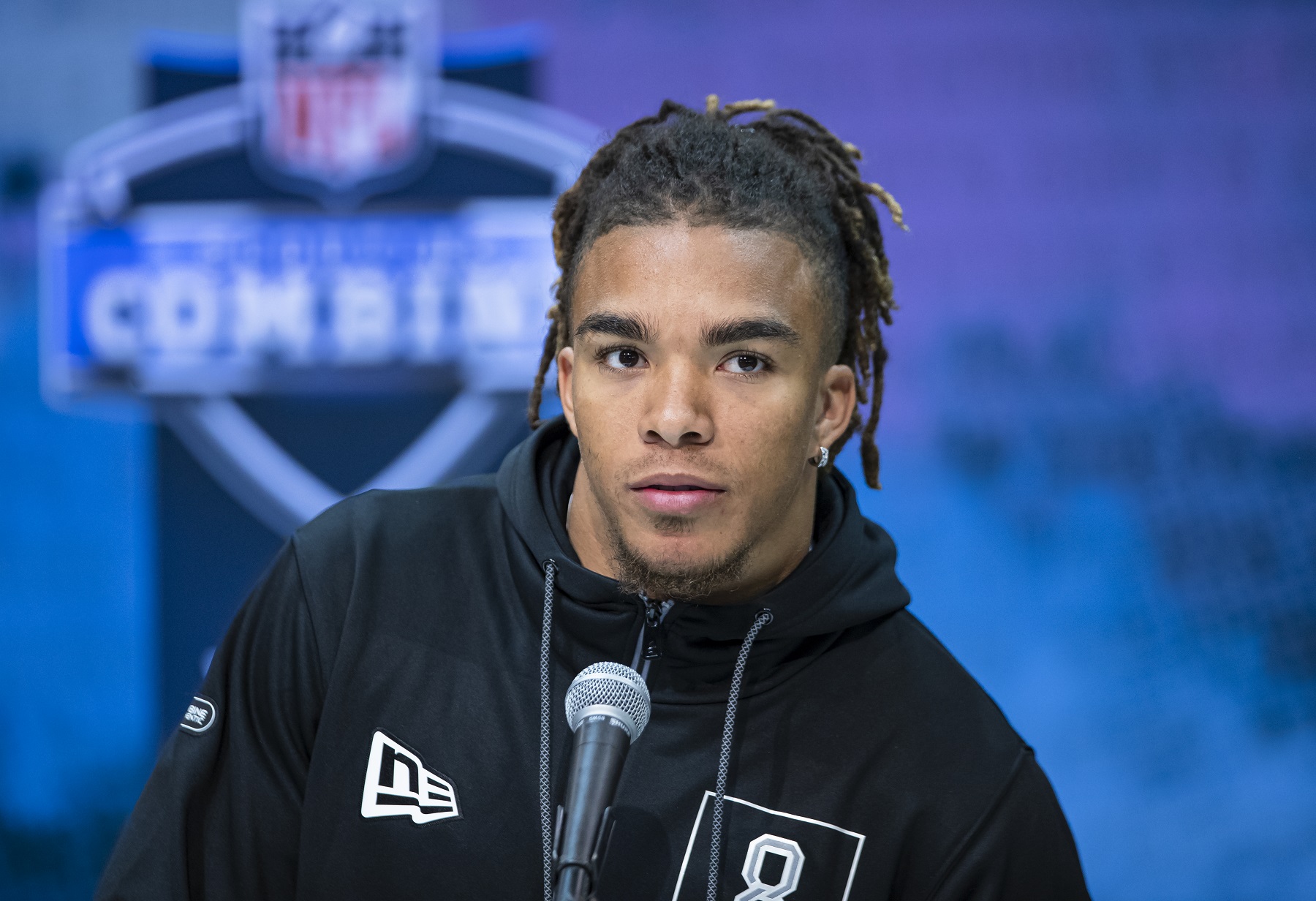NFL
Emerging Steelers Star Chase Claypool Overcame a Tough Early Life and Family Tragedy

Rookie receiver Chase Claypool more than doubled his season output by making seven catches for the Pittsburgh Steelers in a Week 5 victory. In the process, he became the NFL’s biggest story of the day until Dak Prescott’s gruesome injury.
Beating defenders on pass routes has become so much easier for him than was his route to the NFL that included the tragic death of his sister.
Chase Claypool turned heads at Notre Dame
The fact that he was the 11th receiver selected in the 2020 NFL draft wasn’t a criticism of Chase Claymore’s ability as much as it was an acknowledgment of how far he had come from his schoolboy days in British Columbia.
Arriving at Notre Dame in 2016, he had more tackles on special teams than catches as a freshman. His sophomore year, with 29 receptions and two touchdowns, showed the potential. The final two years saw him compile 116 catches for 17 touchdowns. Showing devastating speed for someone standing 6-foot-4 and 230 pounds, Claypool averaged 15.7 yards per reception in 2019.
Knowing he had to catch up to his American-trained teammates upon arriving in South Bend, Claypool worked hard early on and never lost that mentality. Even as a premier receiver as a senior, he continued to contribute on special teams.
“I haven’t had a player that has the kind of consistent competitive drive week-in and week-out, and that’s the way he practices as well,” Notre Dame coach Brian Kelly told Irish Illustrated last year.
The book on him entering the NFL Scouting Combine was that Claypool needed to tighten his route running. However, his physical tools stood out in one of the deepest classes ever for receivers, and the Pittsburgh Steelers took Claypool in the middle of the second round.
It was slow going early with the Steelers, who have a knack for picking receivers like JuJu Smith-Schuster and Diontae Johnson. Claypool was targeted only nine times through three games but made six catches for an eye-popping 25.2 yards per grab.
Week 5 vs. the Philadelphia Eagles was his breakout performance with seven catches for 110 yards and three TDs. He rushed for a fourth score in the 38-29 victory.
He was more into basketball as a teen in Canada
RELATED: The Antonio Brown Comeback Train Appears to Be Over
Growing up in Abbotsford, British Columbia, about 100 miles north of Seattle, Chase Claypool liked racing BMX bikes as a youth. Later, he would excel in both football and basketball, but he thought hoops would be the ticket to college.
“Basketball was something I thought I could go far in and I was expecting some offers to come in,” he told The Athletic. “But as a junior, I started to lean more towards football.”
Basketball was still in his blood even after settling upon the Notre Dame football program as his destination. According to the Post-Gazette, Claypool scored 51 points in a game the night before signing his letter of intent. He averaged more than 40 points a game as a senior.
Claypool credits Jacob Carvery, one of his siblings who played for the University of British Columbia, for nudging him toward football as his path out of tough times just north of the U.S. border. Claypool’s mother, Jasmine, was raising seven boys and a girl by herself, and her job took her away from Abbotsford for weeks at a time.
During the times when his mother couldn’t be there, he benefitted from a strong support system of adults in the neighborhood and at school. He would need that help when Claypool, 13 at the time, lost his sister. Ashley, 17, died by suicide.
Chase Claypool had to deal with his sister’s tragic death
RELATED: In the Midst of Its New Problem, the Pittsburgh Steelers Revive an Old Scourge of the NFL
Understandably, his sister Ashley’s death had a profound effect on Chase Claypool. Barely a teenager himself, the news was hard to process. A quote tattooed on his right arm is a memorial to Ashley:
“A thousand words won’t bring you back. I know because I tried. Neither will a thousand tears. I know, because I’ve cried. Until we meet again.”
The Pittsburgh Steelers rookie never lacked for ambition, but the tragedy ratcheted up his urgency to succeed in life.
“I just think it gave me another thing, another reason to push that much harder,” he told The Sporting News. “I kind of like to use adversity to my advantage and just learn from it and become a better person from it. Happening early in my life helped me kind of push all the way through to where I am at now.”
Where he is now is halfway to stardom. With his size and speed, he figures to reach his destinations.
How to get help: In the U.S., call theNational Suicide Prevention Lifeline at 1-800-273-8255. Or text HOME to 741-741 to connect with a trained crisis counselor at the free Crisis Text Line











